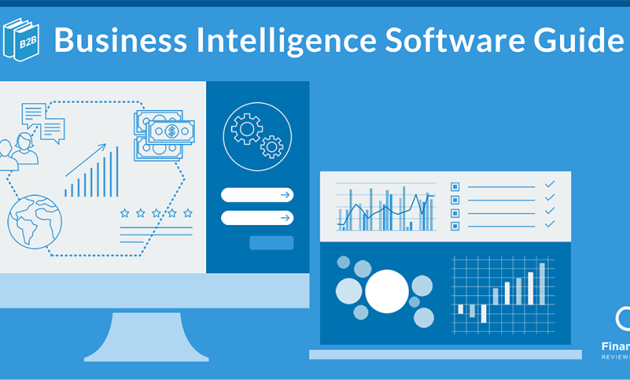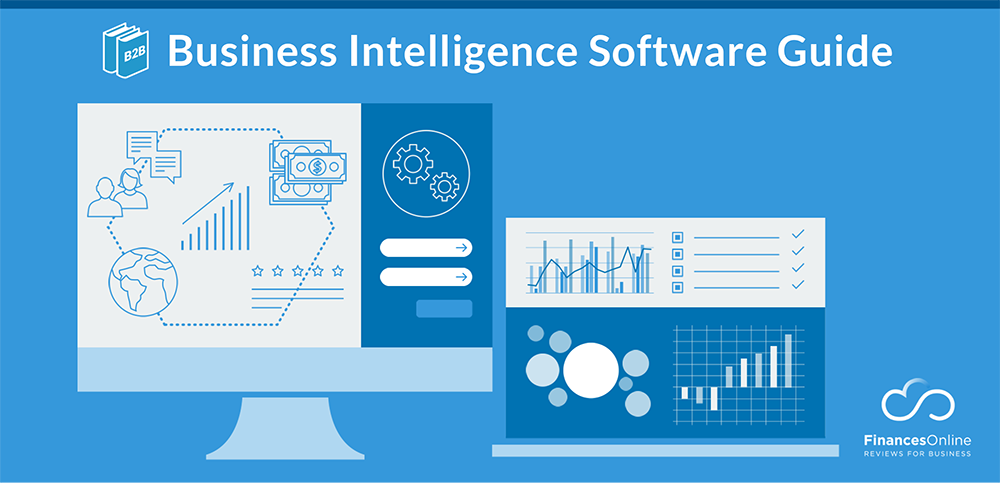
Quick Guide to Business Intelligence Software You Can Trust: Making Data-Driven Decisions
In today’s fast-paced business environment, data is king. Businesses are constantly generating vast amounts of information, but raw data is useless without the right tools to make sense of it. This is where Business Intelligence (BI) software comes in. This quick guide will help you navigate the complex world of BI software, ensuring you choose the right tools to make informed, data-driven decisions you can trust. We’ll explore what BI software is, why it’s crucial, and how to select the best solutions for your needs. Understanding and implementing Business Intelligence software is no longer a luxury, but a necessity for sustained success.
Understanding Business Intelligence Software
Business Intelligence software encompasses various tools and applications designed to collect, analyze, and visualize business data. Its primary function is to transform raw data into actionable insights. This allows businesses to identify trends, predict future outcomes, and make strategic decisions. BI software is not just about reporting; it’s about empowering businesses to understand their performance, optimize operations, and gain a competitive edge. The right Business Intelligence software can be a game-changer.
The Importance of Data-Driven Decision Making
Gone are the days of relying solely on gut feelings and intuition. Today, successful businesses leverage data to inform their decisions. Data-driven decision-making offers several advantages. It reduces risk, improves efficiency, and fosters innovation. By analyzing data, businesses can identify areas for improvement, optimize resource allocation, and personalize customer experiences. The ability to make data-driven decisions is critical for navigating market fluctuations and staying ahead of the competition. Choosing the right Business Intelligence software is the first step.
Key Features of Reliable Business Intelligence Software
When selecting Business Intelligence software, certain features are essential for ensuring reliability and effectiveness. These features contribute to the software’s ability to provide accurate, timely, and actionable insights. Here are some crucial aspects to consider:
- Data Integration: The ability to connect to various data sources, including databases, spreadsheets, and cloud services, is paramount.
- Data Visualization: Powerful visualization tools, such as charts, graphs, and dashboards, are necessary for presenting data in an easy-to-understand format.
- Reporting and Analytics: Robust reporting capabilities and advanced analytical features, like predictive analytics and data mining, are critical for uncovering hidden patterns and trends.
- User-Friendly Interface: The software should offer an intuitive and user-friendly interface, allowing both technical and non-technical users to access and analyze data.
- Security and Compliance: Data security is non-negotiable. The software should comply with relevant data privacy regulations.
- Scalability: The ability to handle growing data volumes and user demands is essential for long-term use.
Popular Business Intelligence Software Options
The market is saturated with Business Intelligence software options. Each offers unique features and benefits. Here are some of the most trusted and widely used solutions:
- Tableau: Known for its powerful data visualization capabilities and user-friendly interface, Tableau is a popular choice for businesses of all sizes.
- Microsoft Power BI: Integrated with the Microsoft ecosystem, Power BI provides a comprehensive suite of BI tools, including data modeling, reporting, and collaboration features.
- Qlik Sense: Qlik Sense offers a unique associative data modeling engine, allowing users to explore data in a flexible and intuitive way.
- Looker: Acquired by Google, Looker is a cloud-based BI platform that focuses on data exploration, analysis, and collaboration.
- Sisense: Sisense is known for its in-memory data processing and ability to handle large datasets, making it ideal for complex analytical needs.
Choosing the Right Business Intelligence Software for Your Business
Selecting the right Business Intelligence software requires careful consideration of your specific needs and requirements. A one-size-fits-all approach does not work. Here’s a step-by-step guide to help you make the right choice:
- Define Your Goals: Clearly outline your business objectives and the specific data insights you need to achieve them.
- Assess Your Data Sources: Identify all the data sources you need to integrate with the BI software.
- Evaluate Software Features: Compare the features of different software options against your requirements.
- Consider User Needs: Evaluate the ease of use and training requirements for your team.
- Assess Scalability and Cost: Ensure the software can scale with your business and fits within your budget.
- Read Reviews and Seek Recommendations: Research user reviews and seek recommendations from industry experts.
- Trial the Software: Take advantage of free trials or demos to test the software before making a commitment.
Implementing Business Intelligence Software Successfully
Implementing Business Intelligence software involves more than just installing the software. It requires a strategic approach to ensure successful adoption and utilization. Here are some essential steps:
- Data Preparation: Clean and prepare your data to ensure accuracy and consistency.
- User Training: Provide comprehensive training to your team on using the software.
- Establish a Data Governance Framework: Implement policies and procedures for data management and security.
- Monitor and Evaluate: Regularly monitor the software’s performance and evaluate its impact on your business goals.
- Seek Ongoing Support: Ensure you have access to technical support and resources.
The Future of Business Intelligence Software
The field of Business Intelligence software is constantly evolving. Emerging technologies like artificial intelligence (AI) and machine learning (ML) are transforming the way businesses analyze data. These advancements are enabling more automated insights, predictive analytics, and personalized experiences. The future of BI software will likely involve greater integration with cloud services, enhanced data visualization, and a focus on self-service analytics. Staying informed about these trends is crucial for businesses looking to leverage the full potential of BI.
Conclusion: Investing in Business Intelligence Software You Can Trust
Investing in reliable Business Intelligence software is a strategic decision that can significantly impact your business’s success. By understanding the key features, evaluating different options, and implementing the software effectively, you can transform data into a valuable asset. Embrace the power of data-driven decision-making and gain a competitive edge. Choose Business Intelligence software you can trust. The right choice will empower you to make smarter decisions. This will drive growth and achieve your business objectives. [See also: Related Article Titles]
